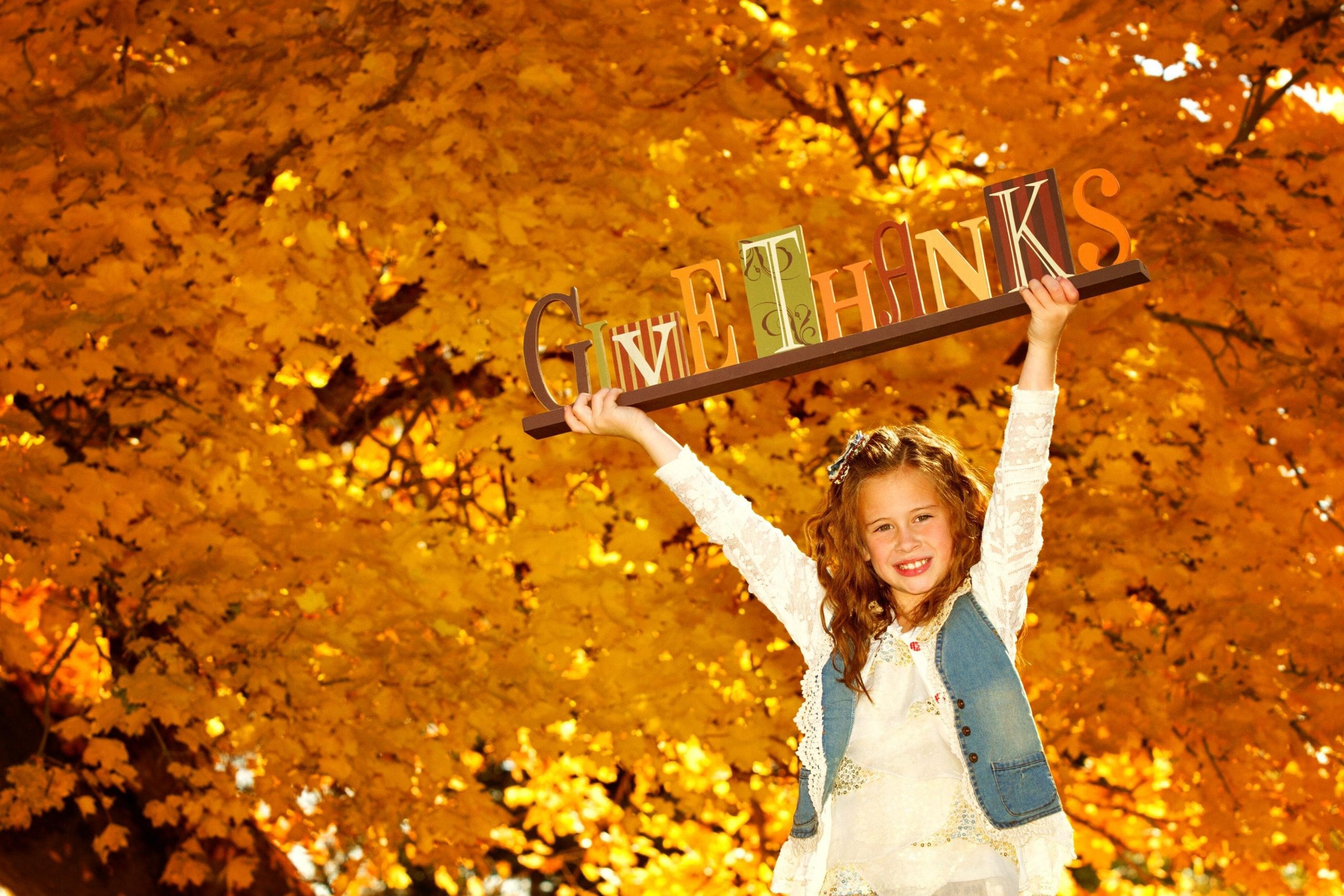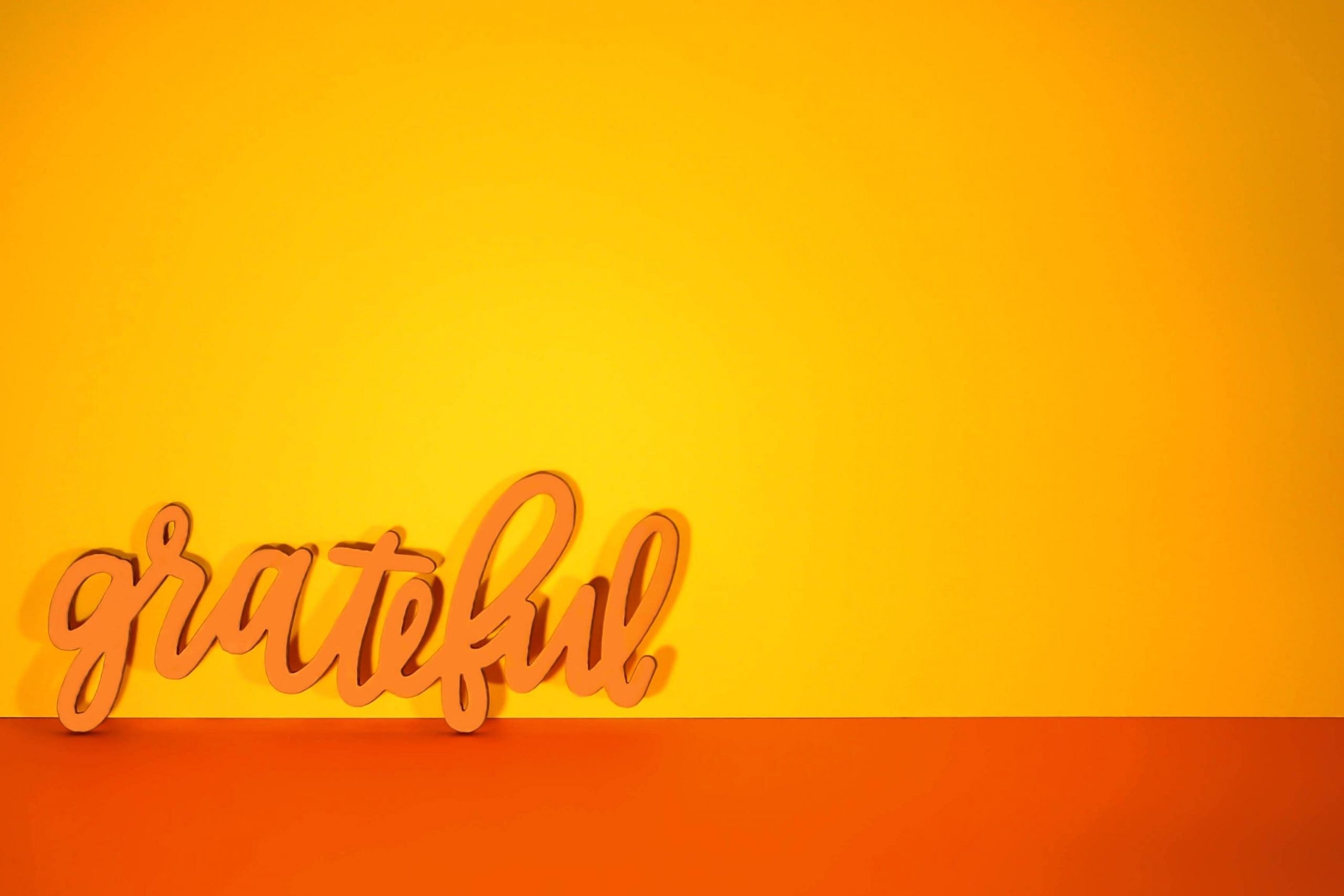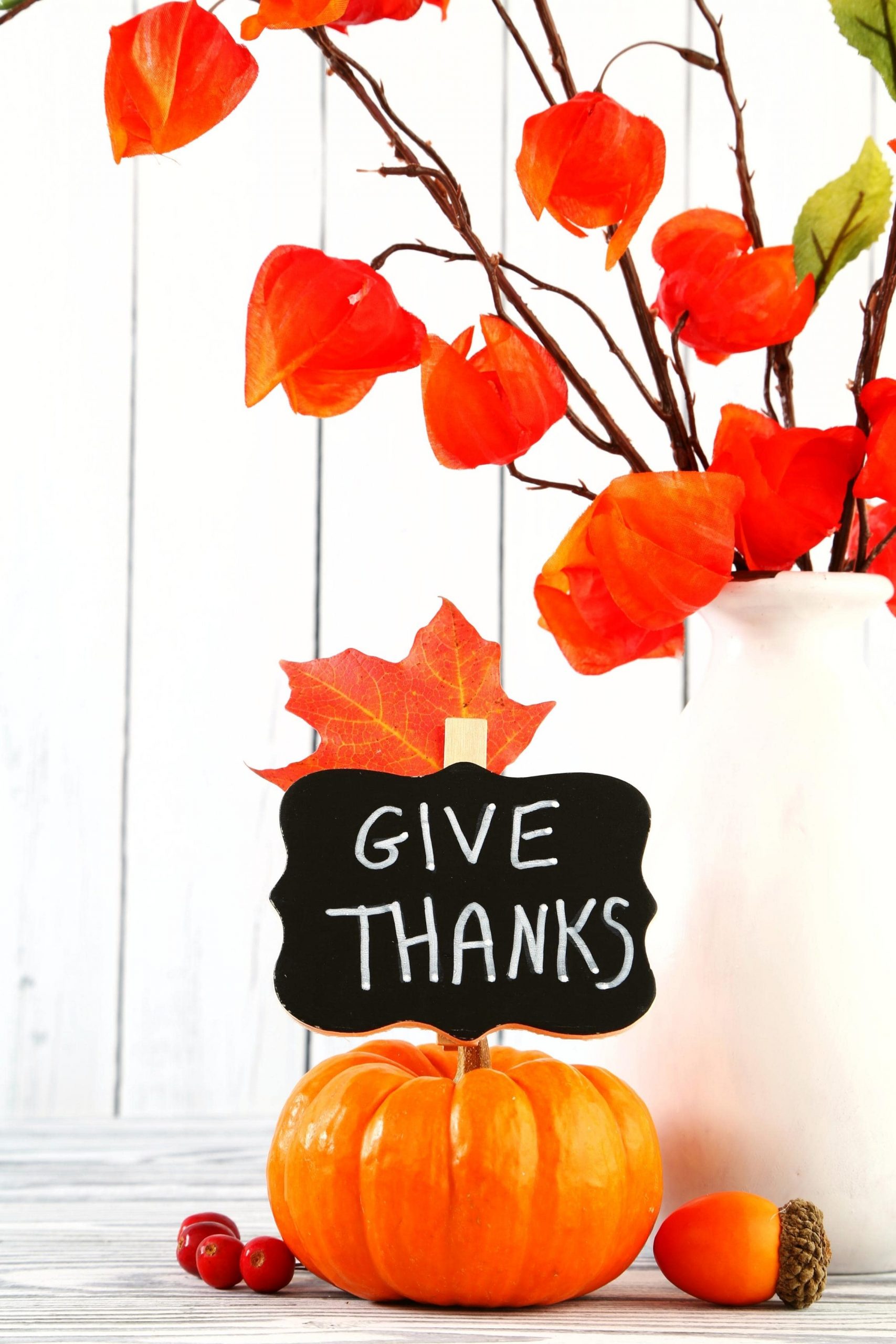
One of the things most important during the holidays is giving thanks or gratitude. I remember one year at Thanksgiving we actually swam in the pool right before we had lunch. What are you going to do? It’s Texas LOL. Here we are back to that time of year where the leaves are changing colors, the weather is getting cooler and snow may be found on the ground. But not in Texas! It is hot year round. But I am still giving thanks . . .
Sometimes giving thanks can be harder to do than you think. It takes practice and a conscious effort to make it a part of your daily life. Giving thanks during the holidays can be even more challenging.
I found a really great article posted on the internet about giving thanks during the holidays and I liked it so much I’m going to share the entire thing right here. It’s pretty quick but it’s got some great links and some good resources and it was just that important for me to share the whole thing. Take a look and let me know what you think!
Giving thanks is so much more than one holiday
The holiday season is upon us. Beginning with Thanksgiving, we’re entering the time of year when we’re encouraged to stop and consider all we have to be grateful for in our lives. And doing so is good for us.
Research has demonstrated that feelings of gratitude are associated with better health, sounder sleep, greater happiness and kinder actions toward others. Holiday gatherings provide useful opportunities to cultivate feelings of gratitude.
We often come together with family and friends, many of whom have been important influences in our life. Take a moment to acknowledge and give thanks for each of them.
Let them know how they’ve guided, inspired or supported you and how much they mean to you. Even our most difficult relatives usually have some redeeming qualities.
Choosing to focus our attention on what’s positive about them, no matter how small, rather than dwelling on their annoying habits can improve your state of mind.
Remembering to be grateful takes practice
Remembering to be grateful takes practice for most of us. The holidays may be a good time to begin practices such as keeping a gratitude journal.
Taking time each day to identify a few things you feel grateful for has been proven to improve mood and feelings of well-being.
A version of this, which has been studied at Duke University Medical Center, is called Bite Sized Resilience: Three Good Things. This practice involves writing down three positive things at the end of the day.
Not only has this helped to reduce the rates of burnout among healthcare providers, but it has been shown to improve resilience, sleep quality, work-life balance, and even depression. “Gratitude visits” can be another useful practice. Recommended by Dr. Martin Seligman, the founder of positive psychology, this exercise begins with writing a 300- word letter to someone who has changed your life for the better.
Be specific about what the person did and how it affected you. Then deliver it in person, preferably without telling the person in advance. Read the whole letter to her or him slowly, allowing time for both of you to savor the feelings of warmth and connection. Research suggests you’ll feel happier and less depressed for weeks afterward.
Don’t make giving thanks mandatory, let people roll with their individual flow
At times holiday rituals intended to be expressions of gratitude interfere with the experience for some people. As Kira Newman from the UC Berkeley Greater Good Science Center writes in The Trouble with Thanksgiving Gratitude, “For the shy adult or the grumpy teen, expressing gratitude around the Thanksgiving table can seem awkward and trite.”
These forced “grateful motions” can feel more like a burden than a blessing. Newman suggests four exercises that can help everyone feel less pressured and more authentically grateful.
Our culture’s consumerism can be another obstacle. Giving holiday gifts to show thanks and appreciation to loved ones can become bogged down in materialism. In Cultivating Gratitude in a Consumerist Society, Thomas Gilovich of Cornell University discusses research that shows experiential gifts give greater satisfaction than material ones and that experiential gifts lead to higher levels of gratitude.
To help you get in the mindset of gratitude, take a few minutes to watch Louie Schwartzberg’s TED Talk on the subject. You’ll be reminded of all we have to be grateful for each day of our lives.
Additional resources to support your gratitude practice are listed below.
Holiday Gratitude Traditions for Fostering Gratitude in Children, Christine Carter, Ph.D.
Turn Holiday Resentment into Gratitude by Meg Selig
Six Habits of Highly Grateful People, by Jeremy Adam Smith
Tips for Keeping a Gratitude Journal, by Jason Marsh Gratitude
Apps
Happier by Happier, Inc. – Free for iOS
Attitudes of Gratitude Journal – free for Android
Gratitude 365 – $1.99 – iOS
Now you can see why I just went ahead and posted the whole thing because it was just that good!


My gratitude practice is personal and powerful for me
A few extras I might add is one of my favorite things that I do every morning is I write on a piece of paper one thing I’m grateful for.
Something that I’m giving thanks for for the day before or possibly the day to come and I want to write it down and put the date so that when I look back at the end of the year I can review all the wonderful things that happened to me in the past 365 days.
I found a really pretty glass box framed in wood that says gratitude on the outside and I dropped my piece of paper in there every day and on New Year’s Day I dump it all out on my bed and I review it and I think back to all the good, the bad and the sometimes ugly that’s happened in my year.
I don’t just include my little gratitude writings I also like to include play bills or hospital bracelets (yep thats a plural for me lol) or other small things that are mementos of things that happened to me through the year. Even though some of them are not positive experiences I like to give thanks for the opportunity to learn from that experience and grow with it. If you can turn something from a negative experience into something positive I consider that a win.
I also like to equate breathing exercises with giving thanks. I might be in the middle of something that’s causing me anxiety or stress and I find that if I can stop and take a couple of deep breaths and express my thanks for whatever it is that’s going on in that current experience it helps me slow down and process what I’m going through in a more healthy way.
Check out my blog called holiday stress to see some other really cool exercises and activities that you can do during the holidays to fight seasonal depression or other holiday stressors.

